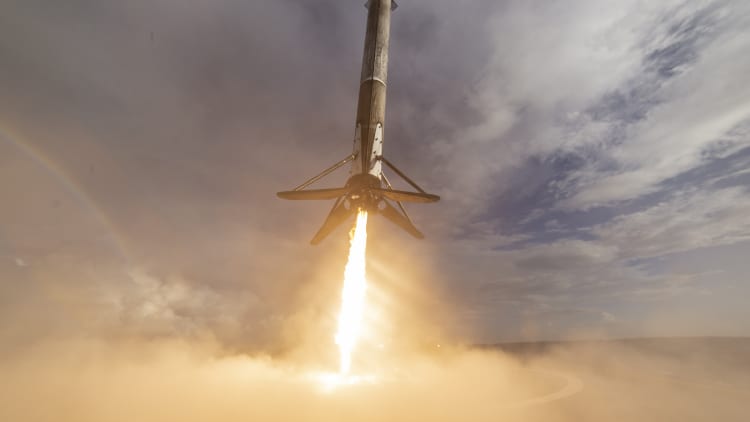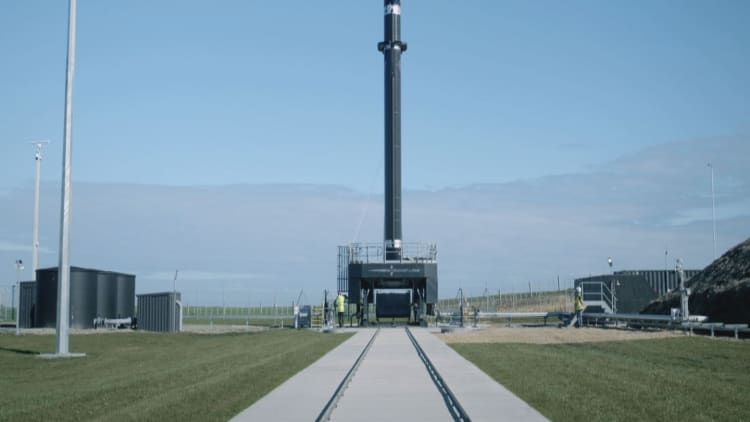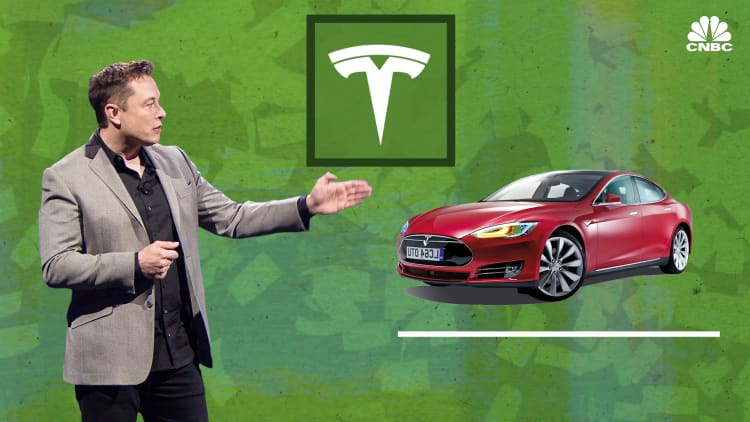
SpaceX completed an unprecedented 19th launch this year on Monday, while putting a U.S. record 64 satellites in orbit at once.
Additionally, SpaceX made history as the first company to fly the same orbital-class rocket three times. This Falcon 9 rocket's large first stage, also known as the "booster," launched and landed twice before, in May and August. Reusing rockets is key to Elon Musk's space company, which hopes to make humanity "a multiplanetary species."
SpaceX now dominates the global market of orbital rocket launches. Earlier this year, it debuted the Falcon 9 Block 5: The most advanced version of the workhorse rocket. Each Falcon 9 Block 5 "is capable of at least 100 flights," Musk said in May. The billionaire entrepreneur said the SpaceX plans for Falcon 9 to be able to launch, land and launch again in 24 hours as early as next year.
Called the "SmallSat Express," Monday's mission was bought and coordinated by launch services liaison Spaceflight Industries. This mission represents the most ambitious yet for the Seattle, Washington-based company, which has raised more than $200 million in funding. To date, Spaceflight has launched over 140 satellites for companies and universities around the world.
"Launching 64 satellites of this variety has never been done before and led to new challenges that had never been faced before," Spaceflight CEO Curt Blake said in a statement.
The core of Spaceflight's services business is what the company calls "rideshare" missions: Piggy-backing small satellites on the back of missions where a larger satellite is headed in the same direction.
WATCH: This small-rocket unicorn wants to be the FedEx of space

Spaceflight's SSO-A mission includes 15 "microsats" and 49 "cubesats." These small satellites are from 34 different private and public organizations, representing 17 different countries: the United States, Australia, Italy, Netherlands, Finland, South Korea, Spain, Switzerland, UK, Germany, Jordan, Kazakhstan, Thailand, Poland, Canada, Brazil and India.
The veritable Christmas tree of satellites are packed in a 20-foot stack divided into two parts, Spaceflight says.
About 13 minutes into the mission, Spaceflight will begin deploying the satellites using multiple dispensers and techniques. The process should take about five hours.
The company describes the stack "one of the most complex and intricate endeavors" that it has undertaken. Spaceflight did more than just sign all the satellites to the mission: The company planned, engineered, integrated, contracted and sold the mission.
SpaceX is also is expected to attempt to catch the fairing, which is the bulbous nose cone on top of the rocket.
SpaceX has attempted to catch the fairing after previous West Coast launches, using a high speed boat known as "Mr. Steven." The boat has a net strung up behind it to capture the fairing.




